Why nuclear weapons should be a major focus of the 2020 campaign
By John Mecklin | January 1, 2020
Why nuclear weapons should be a major focus of the 2020 campaign
By John Mecklin | January 1, 2020
The proverbial alien beamed down to Earth would find the situation quizzical indeed: The political debates and campaigns involved in selecting the most powerful person on the planet—the US president—scarcely mention the stark fact that any president could at any time be called to decide, almost instantly, whether to order a nuclear attack that would lead to the end of civilization and, possibly, the human species. There is, at present, no significant check on the president’s ability to make that decision. If he orders a nuclear attack, there will almost certainly be one. For a variety of reasons, the chances of nuclear war are not negligible; they’re at least as high as they were at the height of the Cold War, according to leading world experts.[i] And a nuclear exchange of even modest proportions would change the world forever,[ii] degrading civilization in countless ways and affecting every person, everywhere. (At least every live person. The tens or hundreds of millions killed quickly in a nuclear exchange will just be dead.)
Yet when it comes to the major American media covering the US presidential election campaign, discussion of nuclear policy seldom happens, and when it does break out, the level of intelligence and sophistication involved is often, to put it politely, wanting.[iii]
I understand well that nuclear war is not a subject most people want to chat about over breakfast, and that other admittedly serious challenges—the economy, health care, and educational costs, among many—rank higher in surveys of US voter concerns. The issues voters are interested in should indeed be addressed—but not only those issues. As The Atlantic’s estimable Jim Fallows once put it: “It’s easy enough to make interesting things interesting—sports, scandals, disasters, movie stars—and it’s even easier to make important things dull. What makes journalism different from sheer entertainment is that it is supposed to deal with ‘real’ issues, problems, and concepts. Presenting them in a way that holds people’s attention—that’s the standard journalism, in its different forms, is always aiming for.”[iv]
At the top of the list of those “real issues” are two threats that could, if unaddressed, lead to the end of civilization, or even the extinction of the human race. One of those, climate change, was given only superficial attention in past presidential election cycles, but thanks to increased public interest—fueled in part by a worldwide movement of young people—the climate issue has gotten some serious coverage this year. It hasn’t been nearly enough coverage, given the enormous long-term consequences—flooded coastal cities, mass forced migration, droughts, wildfires, widespread species extinction, and more—that unchecked climate change will assuredly bring. But this year, it’s possible to say that political journalists have not completely flunked the climate test.
Election-related coverage of the nuclear threat, on the other hand, has been pathetically scant in 2019 and, by admission of major media outlets themselves, disappointing in terms of depth.[v] It’s a pretty shocking failure, and a remarkable illustration of journalistic herd amnesia. I clearly remember when Donald Trump and Kim Jong-un traded creative insults and nuclear threats, terrifying America and the world for months on end. It was less than three years ago when Trump threatened to unleash “fire and fury” against North Korea,[vi] and Kim responded by saying that he would “tame” Trump “with fire” and by calling the US president a “mentally deranged US dotard.”[vii] Surely you remember how Hawaii was terrorized for half an hour, just two years ago, by a warning (ultimately shown to be mistaken) that a nuclear missile attack was underway?[viii]
But judging by the performance of the American political press in the presidential campaign so far, the nuclear threat that existed in 2017 and 2018 (and continues undiminished today) is, simply, not worth serious discussion. At least not when compared to health care, or the economy, or a border wall, or the relatively minor policy differences between Democratic centrists and moderates—or, really, just about anything. This myopic media approach to vetting presidential candidates—candidates whose most important responsibility, if elected, will be to keep the world from destroying itself with nuclear weapons—is simply daft. And, by the way, grossly incompetent, as a matter of journalism.
To help US media outlets raise nuclear policy to the forefront of the 2020 presidential campaign—where it indisputably belongs—I’ve asked five top experts, all with high-level governmental experience in nuclear policy, to lay out the issues that serious journalists should be questioning US presidential candidates about over the next year. In this issue:
- John Holdren, former science adviser to President Obama, explains why he believes the United States should change its current policy and adopt a no-first-use stance vis-a-vis nuclear weapons.
- James Miller, Under Secretary of Defense for Policy in the Obama administration, takes a different tack on no first use, explaining why he believes the United States should retain the option of using nuclear weapons first—at least for now.
- Bruce Blair, a Princeton University research scholar and co-founder of the Global Zero movement, provides an authoritative description of the US president’s ability to order a nuclear attack and how this “sole authority”—and the US command and control system linked to it—might be altered to make nuclear war less likely.
- Alexandra Bell, senior policy director at the Center for Arms Control & Non-Proliferation and senior advisor in the Office of the Under Secretary of State for Arms Control and International Security in the Obama administration, looks at the future of arms control—including but not limited to prospects for extending New START, the agreement that limits the US and Russian nuclear arsenals—and why major news organizations should pursue clear answers from presidential candidates in regard to their approaches to controlling and eventually reducing the number of nuclear weapons in the world.
- And Brad Roberts, director of the Center for Global Security Research at Lawrence Livermore National Laboratory and Deputy Assistant Secretary of Defense for Nuclear and Missile Defense Policy in the Obama administration, makes his argument that the United States’ entire nuclear policy and posture architecture needs to be revamped to fit a new strategic environment in which new technologies and national policies have created a threat matrix quite different from what the world faced in the aftermath of the Cold War.
Major American news organizations have repeatedly distinguished themselves in the past three years in their coverage of the US president, publishing expensive, technically sophisticated, thoroughly documented investigations of the president’s alleged misdoings even as that he labelled those organizations, with apparently intended Stalinist echoes, “the enemies of the people.”[ix] Count me as a proud member and supporter of a free and insolent press, the most reliable guarantor of democracy that Americans will ever know.
All the same, the failure of major American media outlets to prominently confront presidential candidates and voters with the stark realities of the nuclear age constitutes—much as it dismays this veteran journalist to report it—sheer journalistic malpractice. It is malpractice that threatens the future of the entire human experiment, and it needs to end, starting now and continuing, at the very least, through Nov. 3, 2020.
[i] See https://thebulletin.org/doomsday-clock/current-time/
[ii] See https://tandfonline.com/doi/full/10.1177/0096340212459127
[iii] See https://www.reuters.com/article/us-debate-nuclear-commentary/commentary-what-the-candidates-didnt-say-about-nukes-idUSKCN11X1ZX
[iv] See https://psmag.com/page/audience-influence
[v] See https://www.defenseone.com/ideas/2019/07/five-questions-about-nuclear-weapons-should-have-been-asked-debate/158849/
[vi] See https://www.nytimes.com/2017/08/08/world/asia/north-korea-un-sanctions-nuclear-missile-united-nations.html
[vii] See https://www.washingtonpost.com/news/worldviews/wp/2017/09/21/north-korean-leader-to-trump-i-will-surely-and-definitely-tame-the-mentally-deranged-u-s-dotard-with-fire/
[viii] See https://thebulletin.org/2018/08/dawn-of-a-new-armageddon/
[ix] For an authoritative explanation of the roots of the phrase and the dangers of its use, see https://www.newyorker.com/news/daily-comment/trump-and-the-enemies-of-the-people and https://www.nytimes.com/interactive/2019/11/30/opinion/editorials/fake-news.html
Together, we make the world safer.
The Bulletin elevates expert voices above the noise. But as an independent nonprofit organization, our operations depend on the support of readers like you. Help us continue to deliver quality journalism that holds leaders accountable. Your support of our work at any level is important. In return, we promise our coverage will be understandable, influential, vigilant, solution-oriented, and fair-minded. Together we can make a difference.

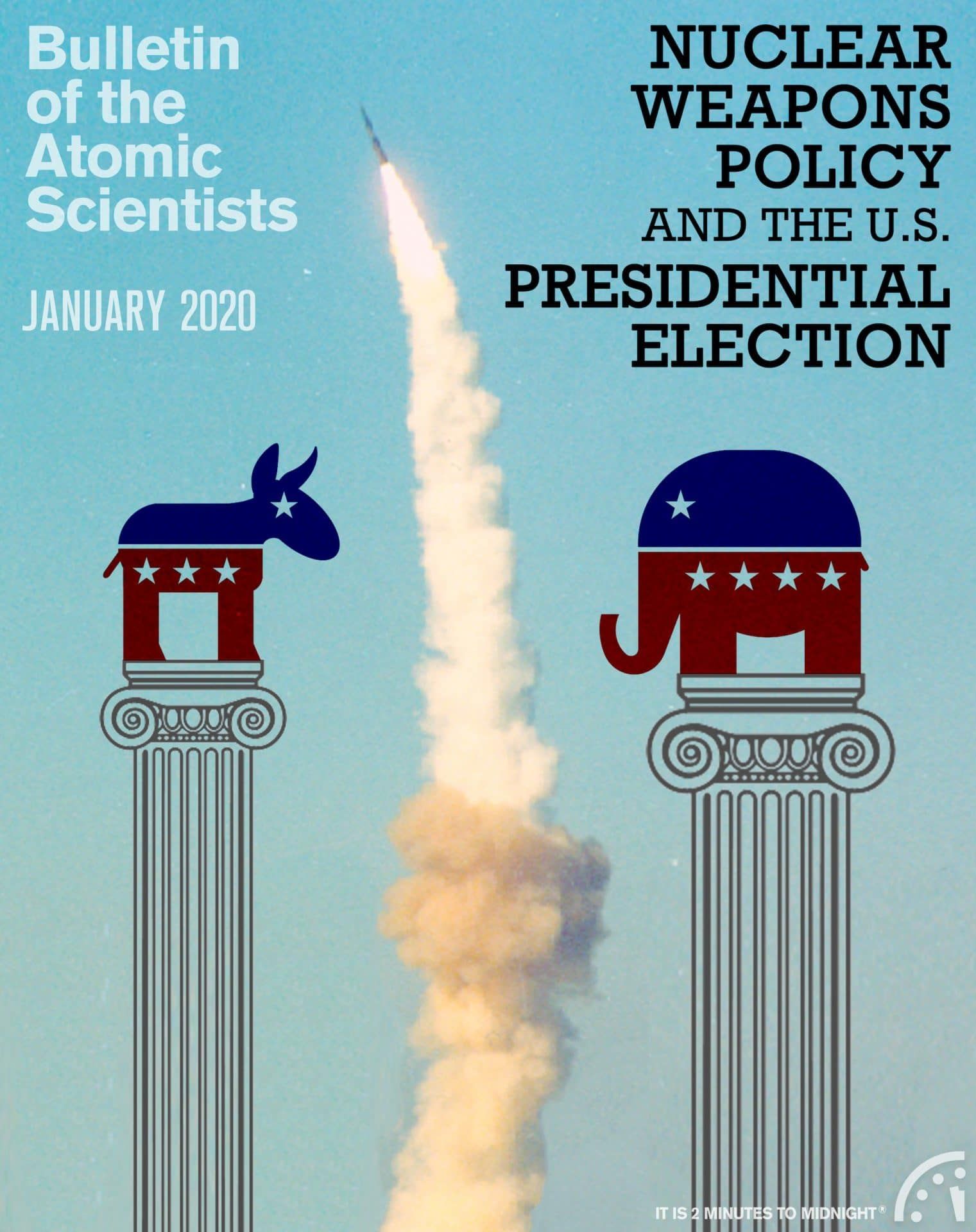
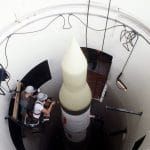
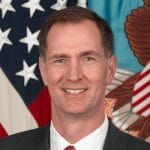




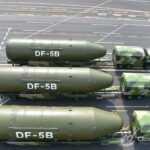

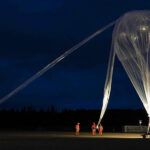











And, what will be happening now? Who in America will take a step towards make the American citizens aware of the fact that their lives are severely endangered by American military provocations which could easily end up in an incident or mistake at Russian or China borders?